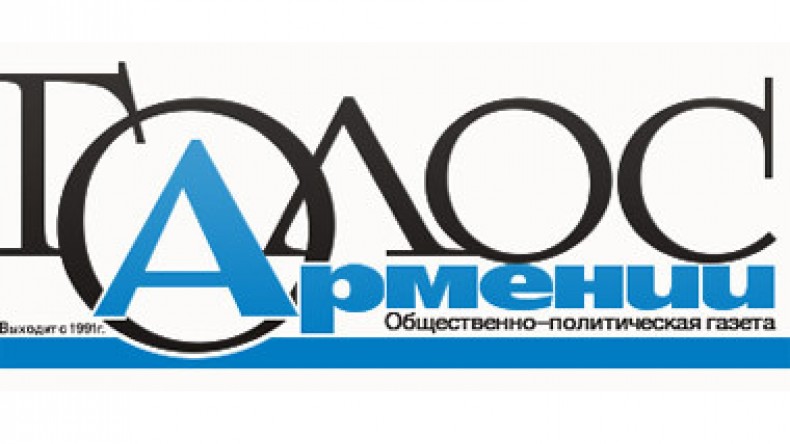
Europe without 'conscience'?
At the entrance to the Palace of Europe in Strasbourg it’s written: “Democratic conscience of Europe.” This is how the organization, actively engaged in the political processes in South Caucasus states for almost 11 years, proudly calls itself. However, in recent years this organization gives rise to seriously and profoundly suspect its right to be called so.
In the previous issue of ‘Golos Armenia’ (Voice of Armenia) daily we have already covered a report by the European Stability Initiative (ESI) nonprofit organization titled “Diplomacy of caviar: How Azerbaijan made Council of Europe to dummy up.” It unveiled the anatomy of a miserable process born in January 2001 when Azerbaijan entered this structure, in the aftermath of which, according to ESI report, the Council of Europe is coping with very serious challenges “to recover fundamental European values for justifying its future existence.”
A more interesting part of ESI report is the description of mechanisms with which PACE positively assessed parliamentary elections in Azerbaijan in 2010, however, described in the report as “fraudulent” and “the worst” elections in the history of CoE. The report unveiled how Baku sought appointment of corrupted rapporteurs in the Parliamentary Assembly, thus the authorities managed to escape the negative consequences of the elections. “In 2010 not a single opposition party received parliamentary mandate. How could it happen that the head of PACE elections observation mission declared the elections were in line with the international standards and with the Council of Europe standards? Why are the debates about Azerbaijan in PACE becoming more praising and encouraging when the situation on human rights is steadily deteriorating since 2003?” ESI report said.
A scandal took place between PACE and ODIHR observers during the elections. Unlike corrupted representatives of PACE, who sought to give a positive assessment of “fraudulent elections,” ODIHR representative Audrey Glover declared that the elections were non-democratic, and serious violations were committed during the elections. In return, “PACE representatives called ODIHR’s position “idiotic,” insisting that the elections were good,” report’s authors say. They report that several days later head of OSCE PA delegation Wolfgang Grossruck sent a letter to OSCE head, complaining about Audrey Glover and blaming ODIHR for its lack of professionalism. Member of PACE observer mission Tadeus Ivinski also complained about ODIHR in 2011.
It is not accidental that we call attention to disagreements between representatives of the two European organizations. PACE Standing Committee met in Tirana on May 25. PACE Election Observation Mission to Armenia headed by Baroness Emma Nicholson made a report on Armenia’s parliamentary elections at the meeting. Experts have already called the report contradictory, saying that the report contains manipulations and disparities. More, in her speech, the Baroness welcomed development of democratic processes in Armenia, while, in the report, she used the expression “anti-democratic approach.” There is an abrupt difference between the assessment of the elections by ODIHR and PACE missions, while immediately after the elections both of these organizations gave a positive assessment. It only remains to guess the reason why the Baroness radically changed her opinion in two weeks’ time.
In this context it is noteworthy that ESI report mentions parity approach to Armenia and Azerbaijan, shown while admitting South Caucasus countries to the Council of Europe, with calls of human rights organizations for not admitting Azerbaijan disregarded, and unanimous positive view regarding Armenia. Since then the practice of vicious parity, despite obvious difference between democratic developments (with undoubted existence of serious problems in Armenia) has been dominating in the policy of PACE. And “caviar diplomacy” considerably reinforced this policy requiring not only keeping silent about authoritarianism and mass human rights violations in Azerbaijan but also asserting in the European community that Armenia allegedly hardly differs from its neighbor in observance of human rights and fulfillment of its commitments to the Council of Europe. Isn’t it the main reason behind the striking drops of moods and assessments of PACE mission, in particular, head of the mission Emma Nicholson?
Meanwhile, another scandal broke out regarding the current and former members of the PACE. The Swedish newspaper Expressen published an article on May 29, which contains harsh criticism about former MEP Göran Lindblad in connection with the corrupt regime of Baku, which many Swedish officials say is a "disgusting and horrible phenomenon." It is worth remembering that two years ago Lindblad was appointed rapporteur on Armenia, which caused a backlash with the Armenian delegation. The Swede publicly had accused the head of the delegation Mr. D. Harutyunyan in a bribe attempt. Time puts everything in its place proving also the fact that one measures the political "shirt" by his own bushel, which was also in the case of Lindblad and his corrupt colleagues, expressed in quantities of caviar from Baku, silk carpets and petrodollars.
Although the report on the "caviar diplomacy" is certainly a severe blow to official Baku, however, there is little change in the perception of this state by the international community. Thoroughly corrupted, mired in dirty fraud, embezzlement of state property and robbery of his own people, the Aliyev regime in recent decades is trying to spread in Europe and in the world their own morals and a mechanism to address the issues by giving generous bribes and expensive gifts buying almost everything – starting with the shameful silence of PACE, UN, UNESCO and other organizations till the awards and titles given by the first lady, Olympic medals and victories in song competitions.
But there is a far more important issue - the Council of Europe and its Parliamentary Assembly, which brought very serious charges, threatening a complete loss of credibility and discreditation. The “Conscience of Europe" is facing a serious challenge and a test in "caviar diplomacy" and in political commitment and bias, in general, in favor of highly questionable purposes which have nothing to do neither with democracy, nor with conscience.
Newsfeed
Videos






























